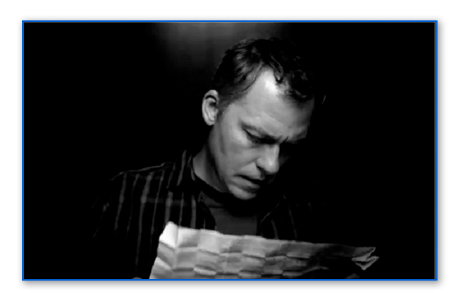Recent false information published by the Federal Substance Abuse and Mental Health Services Administration claims that “19.9 percent of American adults in the United States (45.1 million) have experienced mental illness over the past year.”
In fact, statistics provided on the number of people suffering mental illness are completely false or, at best, questionable.
Psychiatry has literally covered every base with invented criteria. The migraine sufferer has a “pain disorder,” the child who fidgets is “hyperactive,” the person who smokes has a “nicotine” disorder, a low math score is “developmental arithmetic disorder,” arguing with parents is “oppositional defiance disorder.”
Counting these normal human problems, emotions and reactions as “mental illness” is a fraud, designed to solicit funds for the mental health industry and sell more drugs.
The American Psychiatric Association’s Diagnostic and Statistical Manual of Mental Disorders (DSM) is the book that contains names and descriptions of 374 so-called mental disorders (including everything from depression to “caffeine withdrawal disorder”.)
Doctors, psychiatrists and other medical and mental health practitioners use the DSM to diagnose patients. Each DSM mental disorder description carries a code that clinicians can use to substantiate claims for health insurance reimbursement.
Though it has become very influential since it first appeared in 1952 (when it only contained 112 disorders), there is one crucial test the DSM has never passed: scientific validity. In fact, after more than 50 years of deception, broad exposure is now being given to the unscientific and ludicrous nature of this “943-page doorstop.”
Psychiatric diagnosis has come to be accepted as legitimate, reliable and scientific, though it is based on a system whose own authors admit that it is not. Within the covers of the various editions of DSM, its editors freely admit to the book’s intended use and its limitations.
For example, the DSM-IV states, “…although this manual provides a classification of mental disorders, it must be admitted that no definition adequately specifies precise boundaries for the concept of ‘mental disorder.'”
The fifth edition of DSM, planned for release in 2013, has been garnering continuous criticism for the widening inclusion of a new series of so-called behavioral addictions to shopping, sex, food, videogames, the Internet and so on. The contention of many is that the DSM’s developers are seeking to label all manner of normal emotional reactions or human behavioral quirks as mental disorders – thereby falsely increasing the numbers of “mentally ill” people who would then be prescribed one or more drugs that carry all manner of serious side effect warnings.
Based on the DSM then, statistics are touted about near “epidemic” rates of mental illness in order to demand more funds.
The apparent epidemic of “mental illness” is because psychiatry, working with the pharmaceutical industry, invents new disorders almost every year. Take, for example, “Intermittent Explosive Disorder,” often referred to as “Road Rage” and which psychiatrists report afflicts one in 20, about 16 million Americans. How, exactly, did psychiatrists come up with this? They conducted a survey. The survey asked American adults if they had ever experienced three anger outbursts in their entire life. Not surprisingly, a whole lot of people said they had. From this flimsy evidence the Archives of General Psychiatry printed the survey results that hype this fictitious disease.
In September 2001, a U.S. Senate hearing on “Psychological Trauma and Terrorism” was told that, “Seventy?one percent of Americans said that they have felt depressed by the [9/11] attacks.” It’s a worrying statistic, until one realizes that the survey was conducted during the six days after the 9/11 terrorist attacks when Americans were, naturally, in a state of shock. The survey sampled 1,200 people only, which, by some quantum leap, led to the conclusion that nearly three?quarters of Americans were mentally damaged, requiring “professional” help.
What did have an impact were psychotropic drug sales. Immediately following the 9/11 attacks, new prescriptions for antidepressants in New York jumped 17% and prescriptions for anti?anxiety drugs rose 25%.
Behind the alarming reports of mental illness gripping our nation are psychiatrists and drug companies inventing diseases and placing healthy people at risk.
People can have problems in life; these are not, however, some mental illness caused by a deficiency of psychotropic drugs in their brains. Click here to find out the alternatives to psychiatric drugs.
With $76 billion spent every year on psychiatric drugs internationally, and billions more in psychiatric research, one would and should expect an improving condition. However, after decades of psychiatric monopoly over the world’s mental health, their approach leads only to massive increases in people taking mind-altering drugs, escalating funding demands, and up to $40 billion a year in mental health care fraud in the U.S.
What are you going to do about it? Get the Facts. Fight Back.
Like this:
Like Loading...



 It is estimated that in the United States between 4 million and 8 million children are on Ritalin, the drug being used to change the behavior of children afflicted with a so-called “disease” called Attention Deficit Disorder (ADD) or Attention Deficit Hyperactive Disorder ADHD. We already know that the long-term use of Ritalin can be fatal.
It is estimated that in the United States between 4 million and 8 million children are on Ritalin, the drug being used to change the behavior of children afflicted with a so-called “disease” called Attention Deficit Disorder (ADD) or Attention Deficit Hyperactive Disorder ADHD. We already know that the long-term use of Ritalin can be fatal.